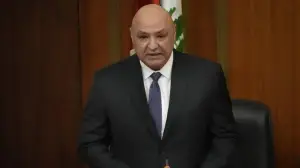Leaders of the Group of Seven (G7) nations have issued a strong joint statement reaffirming Israel's right to defend itself against Iran, while explicitly labeling Tehran as the "principal source" of instability in the Middle East region.
The declaration, released late Monday from the G7 summit in Canada, comes amid escalating tensions between Israel and Iran that have raised fears of a broader regional conflict.
"Iran is the principal source of regional instability and terror. We have been consistently clear that Iran can never have a nuclear weapon," the statement emphasized, highlighting unified Western concerns about Iran's activities in the region.
Balancing Support with Humanitarian Concerns
While expressing firm support for Israel's self-defense rights, the G7 leaders also stressed the critical importance of protecting civilian populations and called for an urgent de-escalation of hostilities throughout the region.
The communiqué specifically urged for a ceasefire in the Gaza Strip and emphasized the need for humanitarian access to affected areas, demonstrating the group's concern for the broader humanitarian impact of the conflict.
This statement represents a unified position from the world's leading democratic economies at a time when military strikes between Israel and Iran have resulted in dozens of casualties on both sides, raising international alarm about potential escalation into a wider regional war.
G7 Solidarity
The G7, comprising Canada, France, Germany, Italy, Japan, the United Kingdom, and the United States, has presented a united front on this complex geopolitical issue, signaling strong Western alignment on Middle East policy.
The timing of this declaration is particularly significant as it follows reports of Israeli military strikes on Iran's state broadcaster building and Iranian retaliatory actions, further intensifying the already volatile situation in the region.
For Nigerians and other African nations, these developments in the Middle East carry potential implications for global security, energy markets, and international relations that could indirectly impact regional economies and diplomatic positions.
Follow BenriNews on Facebook | Twitter | LinkedIn | WhatsApp | Telegram













